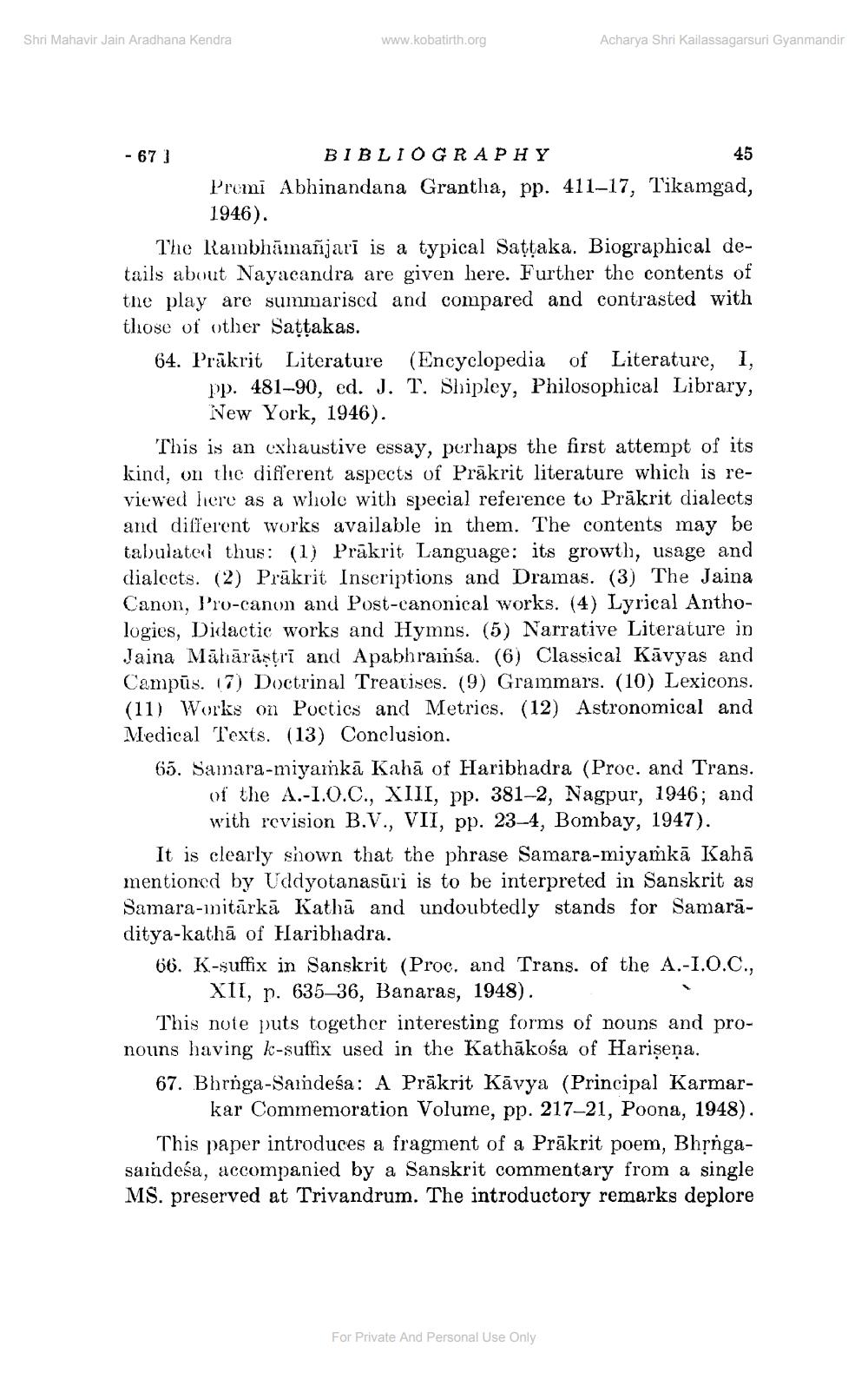________________
Shri Mahavir Jain Aradhana Kendra
- 67 3
www.kobatirth.org
Acharya Shri Kailassagarsuri Gyanmandir
BIBLIOGRAPHY
Premi Abhinandana Grantha, pp. 411-17, Tikamgad, 1946).
45
The Rambhamañjarī is a typical Saṭṭaka. Biographical details about Nayacandra are given here. Further the contents of the play are summarised and compared and contrasted with those of other Saṭṭakas.
64. Prakrit Literature (Encyclopedia of Literature, I, pp. 481-90, ed. J. T. Shipley, Philosophical Library, New York, 1946).
This is an exhaustive essay, perhaps the first attempt of its kind, on the different aspects of Prakrit literature which is reviewed here as a whole with special reference to Prakrit dialects and different works available in them. The contents may be tabulated thus: (1) Prakrit Language: its growth, usage and dialects. (2) Prakrit Inscriptions and Dramas. (3) The Jaina Canon, Pro-canon and Post-canonical works. (4) Lyrical Anthologies, Didactic works and Hymns. (5) Narrative Literature in Jaina Mahārāṣṭrī and Apabhraiśa. (6) Classical Kavyas and Campus. (7) Doctrinal Treatises. (9) Grammars. (10) Lexicons. (11) Works on Poetics and Metrics. (12) Astronomical and Medical Texts. (13) Conclusion.
65. Samara-miyamkā Kahā of Haribhadra (Proc. and Trans. of the A.-1.0.C., XIII, pp. 381-2, Nagpur, 1946; and with revision B.V., VII, pp. 23-4, Bombay, 1947).
It is clearly shown that the phrase Samara-miyaṁkā Kahā mentioned by Uddyotanasūri is to be interpreted in Sanskrit as Samara-initārkā Katha and undoubtedly stands for Samarāditya-katha of Haribhadra.
66. K-suffix in Sanskrit (Proc. and Trans. of the A.-I.O.C., XII, p. 635-36, Banaras, 1948).
This note puts together interesting forms of nouns and pronouns having k-suffix used in the Kathakośa of Harisena.
For Private And Personal Use Only
67. Bhriga-Samdeśa: A Prakrit Kavya (Principal Karmarkar Commemoration Volume, pp. 217-21, Poona, 1948). This paper introduces a fragment of a Prakrit poem, Bhṛngasaindeśa, accompanied by a Sanskrit commentary from a single MS. preserved at Trivandrum. The introductory remarks deplore




